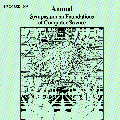A seminal result of [Fleischer et al. and Karakostas and Kolliopulos, both FOCS 2004] states that system optimal multi-commodity static network flows are always implementable as tolled Wardrop equilibrium flows even if users have heterogeneous value-of-time sensitivities. Their proof uses LP-duality to characterize the general implementability of network flows by tolls. For the much more complex setting of $\textit{dynamic flows}$, [Graf et al., SODA 2025] identified necessary and sufficient conditions for a dynamic $s$-$d$ flow to be implementable as a tolled dynamic equilibrium. They used the machinery of (infinite-dimensional) strong duality to obtain their characterizations. Their work, however, does not answer the question of whether system optimal dynamic network flows are implementable by tolls. We consider this question for a general dynamic flow model involving multiple commodities with individual source-destination pairs, fixed inflow rates and heterogeneous valuations of travel time and money spent. We present both a positive and a, perhaps surprising, negative result: For the negative result, we provide a network with multiple source and destination pairs in which under the Vickrey queuing model no system optimal flow is implementable -- even if all users value travel times and spent money the same. Our counter-example even shows that the ratio of the achievable equilibrium travel times by using tolls and of the system optimal travel times can be unbounded. For the single-source, single-destination case, we show that if the traversal time functions are suitably well-behaved (as is the case, for example, in the Vickrey queuing model), any system optimal flow is implementable.
翻译:暂无翻译




